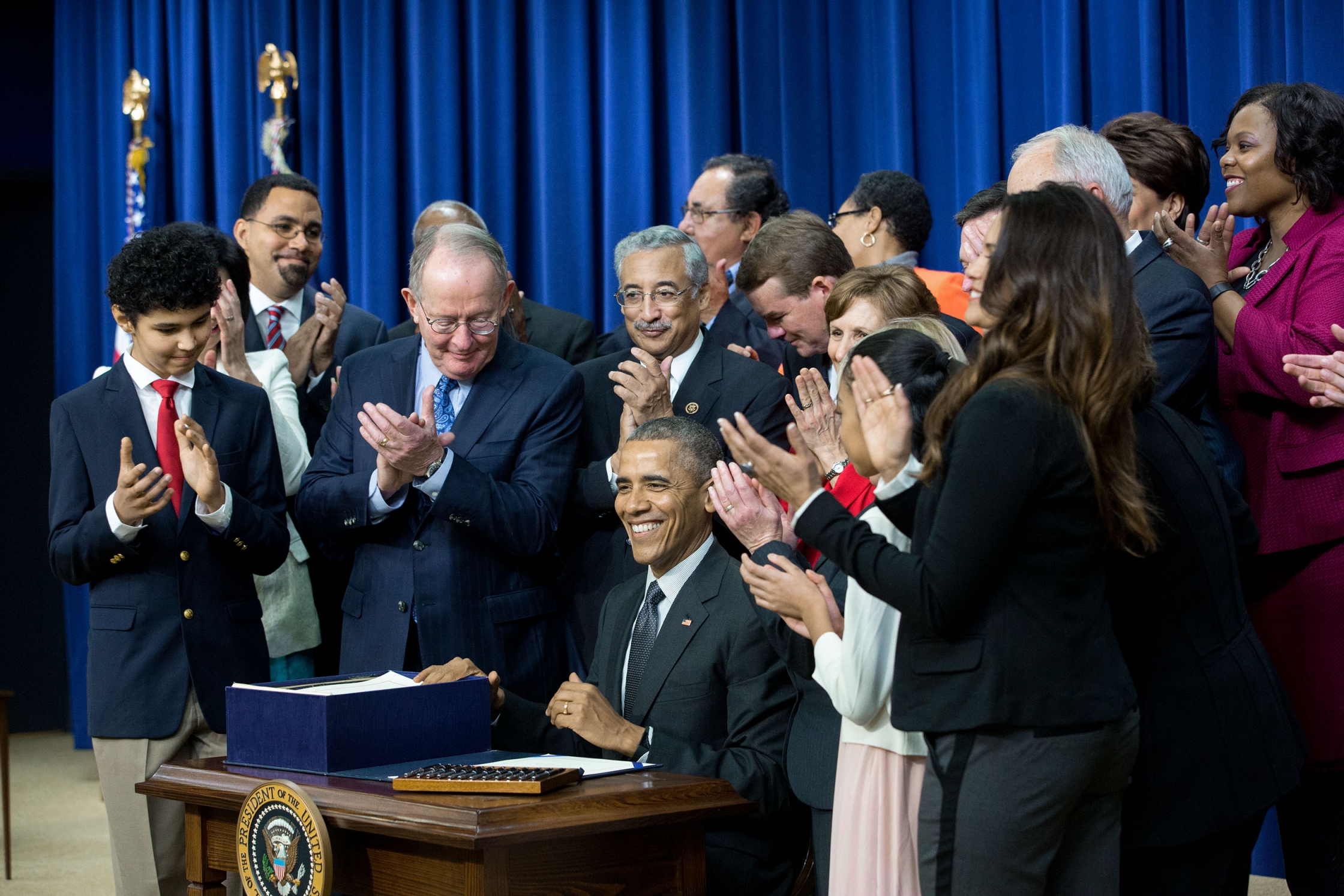On December 10, 2015, President Obama signed into law the Every Student Succeeds Act (ESSA), which reauthorizes the 50-year-old Elementary and Secondary Education Act (ESEA) and replaces the No Child Left Behind Act (NCLB). The new national education law shifts autonomy away from the federal level to the state and local district levels with teacher evaluation, testing, academic standards, and many other policy issues.
F. Chris Curran, an assistant professor in the School of Public Policy, and Ann Kellogg, a Ph.D. student in public policy, have launched a website titled “#ESSA: Social Network Sentiment and Discourse Analysis of the Every Student Succeeds Act.” The website displays their analysis which tracks public discourse of ESSA on Twitter for seven days following its passage. The aim of the research is to analyze how ESSA is understood by the public immediately after it is passed. Curran and Kellogg explain that with increased autonomy bringing challenges to interpretation and implementation of the law at the local level, tracking public sentiment could help answer important questions surrounding the legislation.
“Does the law become entangled in political debates around Common Core? Does the law break with the past ire directed towards NCLB or become viewed as a continuation of such policies?,” the researchers state on the website. “In part, the answers to these questions will be determined by the way in which ESSA comes to be understood in the immediacy of its passage, and one domain in which such discussions will take place is Twitter.”
Curran and Kellogg have found that early public discourse about ESSA has been generally positive, but there are groups of people who view the law negatively.
“Advocacy organizations and individuals identifying as advocates have been very active in the conversation,” they explain, “we find issues such as equity, teacher preparation, and local implementation have been among the most common issues discussed. Such early discourse may set the stage and direction of future discussions as the law progresses through implementation.”
Explore Curran and Kellogg’s observations and find more information at hashtagessa.com. Their work was featured in POLITICO’s Morning Education Briefing on Monday, April 4.
Image: President Barack Obama signs S. 1177, Every Student Succeeds Act (ESSA), during a bill a signing ceremony in the Eisenhower Executive Office Building South Court Auditorium, Dec. 10, 2015. Official White House photo by Amanda Lucidon.
Tags: CAHSS, PublicPolicy




